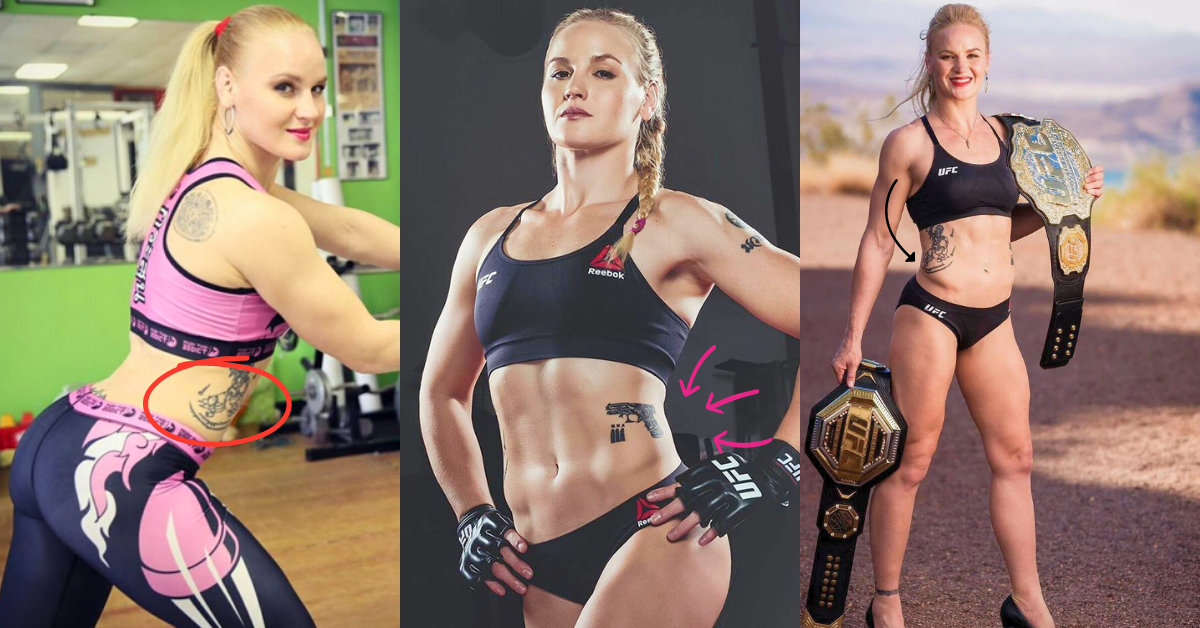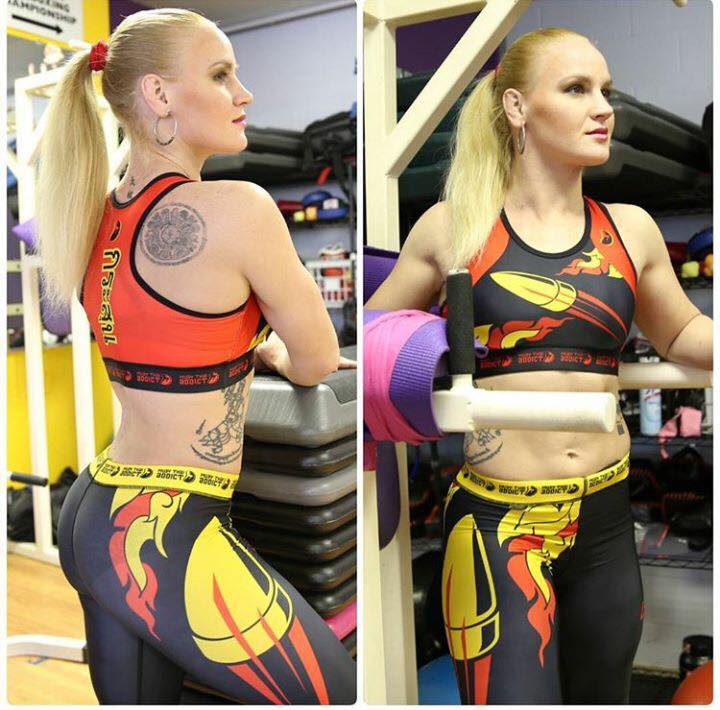
Valentina Shevchenko’s Tattoos pack a ton of meaning into the life and fighting career of the former UFC champion ‘Bullet’ Valentina Shevchenko. From her early combat sports career in Muay Thai to her championship lifestyle in the UFC, let’s take a closer look at Valentina Shevchenko’s tattoos.
Valentina Shevchenko’s Tattoos
One of Shevchenko’s most notable tattoos is a Glock pistol on her lower abdomen. She got this tattoo because she believes guns are universal, much like MMA fighters. Shevchenko is known for her interest in shooting and often spends time at shooting ranges when she’s not training or competing in MMA. She loves shooting so much, ‘Bullet’ had a custom gun made for her:
“They made it for me … Brownells, they support me every time with guns and ammunition with everything, and I have this gun from them.”

On her flock tattoo, Shevchenko said:
“I very love to shoot with Glock. It’s very good gun because it can shoot everywhere. It’s very easy to carry. It can survive in different condition of weather or whatever, and that’s why I have tattoo on my body of a Glock 19. It is universal, just like an MMA fighter. That is why I got a tattoo on my lower abdomen several years ago. So, now I can always keep it near me.”

The Kyrgyz-Peruvian athlete also has Sak Yant Tattoos from Muay Thai. Valentina Shevchenko’s Tattoos hold significance in Muay Thai culture. She has the Hanuman tattoo. A Hanuman Sak Yant represents strength, power, loyalty, devotion, protection from harm, courage, and fearlessness in battle.

Sak Yant tattoos have several purposes for Muay Thai fighters as they bring protection, strength, power, and luck. While not all modern Muay Thai fighters choose to get Sak Yant tattoos, they remain an important part of the art’s cultural heritage and spiritual traditions for many practitioners.

Valentina Shevchenko’s Tattoos, the Sak Yant, come with a set of rules that recipients are expected to follow to maintain the power and blessings associated with the tattoo. The most common rules are based on Buddhist principles and include not killing, not stealing, not lying, not engaging in sexual misconduct, and avoiding intoxication.
